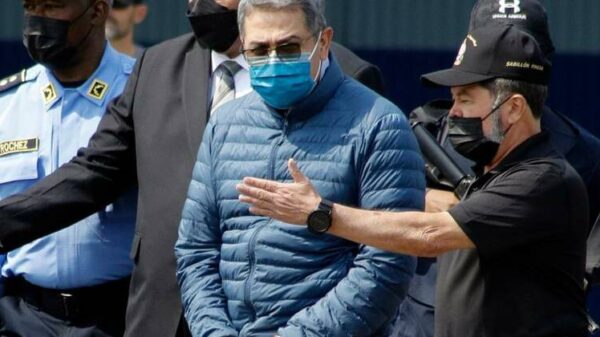Roberto Mosquera, a 58-year-old Cuban, was unexpectedly deported from the United States to Eswatini, a nation in southern Africa, after being arrested by Immigration and Customs Enforcement (ICE) agents during a routine check-in. His family lost contact with him for a month until a social media post from U.S. Assistant Homeland Security Secretary Tricia McLaughlin revealed his deportation along with four other men from different countries.
Mosquera was detained on June 13, 2023, in Miramar, Florida. His family was told he was being sent back to Cuba, a country he had fled over four decades ago. On July 16, family friend Ada recognized him in a photograph shared online, learning that he had been sent to Eswatini, located approximately 13,000 kilometers (8,000 miles) away.
The deportees, which also included nationals from Jamaica, Laos, Vietnam, and Yemen, were transferred under a controversial deal that reportedly involved the U.S. paying Eswatini $5.1 million to enhance its border management capabilities. While U.S. authorities labeled the men as “criminals” with serious offenses, their families and legal representatives argue they had served their sentences and were living freely in the U.S. for years prior to their deportation.
Conditions in Eswatini Raise Concerns
In Eswatini, the deportees are being held in maximum-security prisons without formal charges. They have limited access to legal counsel and can only communicate with family through brief video calls monitored by armed guards. “They are in a legal black hole,” stated U.S.-based lawyer Tin Thanh Nguyen, representing some of the deportees.
Mosquera’s friend, Ada, painted a different picture of the man described by McLaughlin as a “barbaric” gang member. She noted that while Mosquera had a troubled youth, he had transformed his life, marrying and raising four daughters. His criminal record included a conviction for attempted murder, but he had worked for over a decade as a plumber and had checked in with immigration authorities regularly.
According to Ada, “They have painted him out as a monster, which he’s not. He’s redeemed himself.” The deportation occurred despite Cuba’s history of refusing to accept deportees, a point emphasized by the legal representatives of those sent to Eswatini.
Deportation Process and Broader Implications
Reports indicate that the men were informed of their deportation only after boarding the flight. Nguyen highlighted that this method of deportation resembles “modern-day human trafficking” under official channels. “Right when they were about to land in Eswatini, that’s when ICE gave them a notice saying you’re going to be deported,” he explained.
In the wake of the deportations, Eswatini’s government has remained quiet about the agreement with the U.S. and the conditions of the detainees, though reports suggest that only one of the deportees, Orville Etoria from Jamaica, has successfully returned to his home country since the transfer. Etoria, who had completed a murder sentence and was living in New York prior to his deportation, faces significant challenges as he attempts to reintegrate into a society he has not lived in for decades.
Lawyers for the deportees have faced obstacles in accessing their clients, with one attorney, Sibusiso Nhlabatsi, claiming that prison officials falsely stated the men refused to meet with him. There are ongoing appeals in Eswatini’s courts regarding legal representation for the detainees, but progress is hindered by what some describe as a climate of fear surrounding dissent against the monarchy.
As the situation unfolds, both families and legal advocates continue to push for transparency and justice for the deportees. With the U.S. government under scrutiny for its immigration policies, the case raises critical questions about human rights and the treatment of individuals caught in complex international deportation agreements. For many involved, the ordeal has become not just a legal issue but a deeply personal battle for dignity and recognition of their humanity.
The last time Ada saw Mosquera, during a video call from prison, she noted he appeared to have lost weight and was struggling. “This has taken a toll on everybody,” she shared, highlighting the emotional strain on families separated by such drastic measures. “It’s atrocious. It’s a death sentence.”





























































